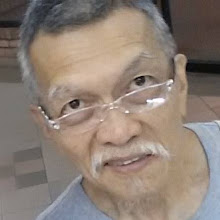This is supposed to be the season of good cheer, right? I don't mean to dwell on doom and gloom, though i have every reason to. Having always been of the half-full glass persuasion, i consider the present age the most wonderful time to be alive, and see this crisis, the likes of which has never been seen, as an opportunity to clear the decks and set things up right for once.
The election of Barack Obama to the US Presidency is a great start but all the President's horses and all the President's men cannot put Humpty back together again. All the money in the world thrown at the problem will not solve it. It requires nothing short of a transformation in the way each person thinks and acts. Those in the West, and others aspiring to a Western lifestyle, will need to reduce consumption, conserve resources and live simply, building relationships instead of portfolios. Many in developing and undeveloped countries who manage to subsist on what they can produce without the convenience of electricity and petrochemicals are by the irony of divine justice more prepared to withstand the tsunami of change once they have a secure water supply.

As a memory hook, i used my birthdate this year to call the first meeting of EcolocityDC to begin the discourse along these lines and get the city that i now call home prepared for powerdown. How does a Chiny-boy from Brown's Town have the gall to try and influence the capital of the Western world? I suppose it's my sappy need to be of service and to make a difference and the fact that i've been through the calamities of natural disasters, political upheaval and exile. Being on the periphery has an advantage in affording one a wider perspective and better view of the centre. There is also the Jamaican proverb which says that when fish comes from the river bottom to say alligator is down there, believe him. I've been there and am here to say leviathans await us if we do not change course.
Our message seems to be picking up momentum as we take part in community activities and programs. Barely six months old, our membership is over 300 and growing every day. We have politicians, students, teachers, architects, planners, writers, activists, young mothers, folks from all walks of life but with a common interest in bringing about sustainability. We've tabled at the Pathways Expo, GreenFestival and the monthly Eco/Justice Cafe at the University of the District of Columbia. We're actively supporting the petition for an organic farm to be put in at The White House and we will be part of an Inauguration weekend event when a song written in honor of the new president will be released. You can sign the petition online.
Our next major foray will be to stimulate the creation of a local community exchange with its own currency to cushion the shocks of the economic meltdown and build local resiliency. Folks who know me from the days of SPECTRUM 20-odd years ago will remember we considered the idea of setting up LETS (Local Economic Trading System) even then. I'm in communication with Dr Edgar Cahn, originator of time banking, who happens to live in DC. That's one advantage of living here, besides the excellent public transport system, there are so many resources available.
I encourage you to make a difference, right where you are, in your home, village or community. The Transition model provides Twelve Steps that any group can follow. In a spirit of sharing, cooperation, collaboration and synthesis, which are all necessary to see us through to survival and sustainability, information and resources are available to everyone. Through our outreach and our connection to the US Transition network. we are fostering the spread of the movement to Bethesda and Brunswick in Maryland, and to Brookland, a DC community with its own identity and strong activist tradition.
If you own a car, consider trading it in for a more energy-efficient model and drive less. I take transit or walk and i've bought a bicycle though i don't trust myself enough yet to hit DC streets on it. If you must shop, consider trading something with someone or buying used. Thrift stores and yard sales offer many wonderful surprises, even new brand-name, at low cost but you will also be utilizing the embedded energy in the product all over again. Homes and buildings use up an inordinate amount of energy, so check on your HVAC system, install energy-saving appliances, solar and geothermal if available. Plant an edible garden and share the harvest with neighbors. Eat locally and low on the food chain, meaning less meat and less processed food. You'll be happier and healthier for it.










